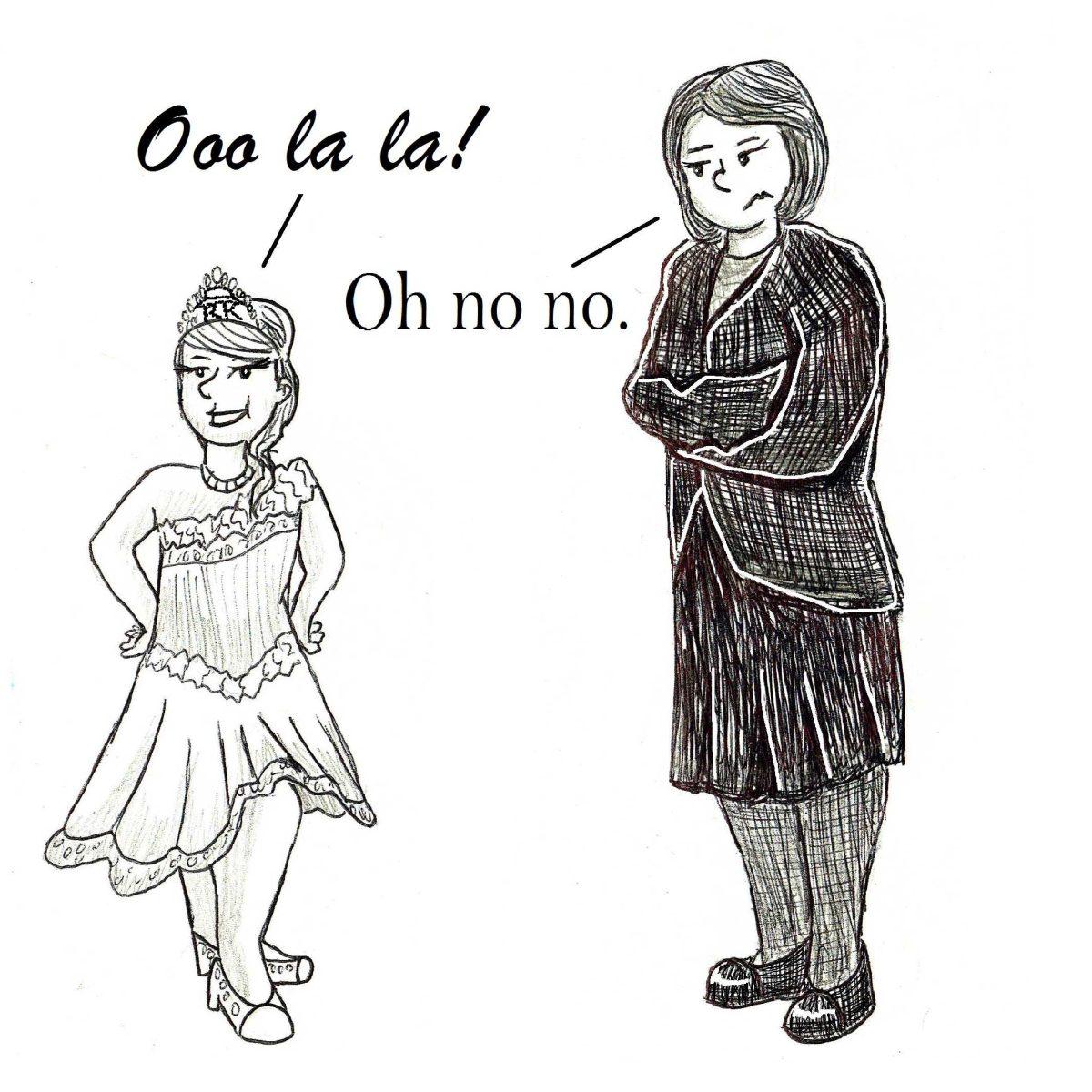My niece’s favorite activity as a child was to play princess. That means she would dress up in my dresses, high heels and jewelry to parade around the house doing her princess wave and smile.
I might find that a lot more disturbing if she wasn’t then sitting her little brother down to play teacher.
Don’t get me wrong, I worry about my niece and how she will grow up in a world where she’s told she is beautiful more than she is told she is smart. But I also see that she has a love of learning.
She also happens to like dressing up and being the center of attention sometimes.
Stopping little girls from wearing a swimsuit on stage at the age of 8 isn’t going to solve the actual issue at hand — the unhealthy image of sexuality in children.
Last week, France voted to ban child beauty pageants, with a vote of 196 to 146. Their reasoning was that it promote the overly competitive sexualization of young girls.
Former Sports Minister Chantal Jouanno said the competitions promotes unhealthy body images for children, with parents perpetuating it, placing importance on their child’s beauty.
My question would be, why aren’t we focusing on the parents who are saying what is important is to be beautiful?
Children face the first stage of puberty, adrenal puberty, between the ages of 8 and 10 years old, contrary to the thought that puberty doesn’t hit until middle school. At this stage, we experience hormonal changes and often have our first experience of sexual expression. Instead of approaching this with resources to teach children about their newfound sexuality, we teach them to keep it quiet, unless it is in the name of competition.
Why are the little girls in France so inclined to parade around in swimsuits to be told they are beautiful?
It is because they are being taught by their parents, teachers and society.
There are females who benefit from the pageant system — those who learn professionalism, healthy competitiveness and win scholarships and monetary prizes that they otherwise wouldn’t have access to. Those females shouldn’t be punished because the entire system is wrong.
This law, should it pass National Assembly, will prohibit any beauty competitions for anyone under the age of 16.
Violators would face up to two years of jail time and $40,000 in fines.
Alternative solutions that would actually benefit society and change the concept of beauty pageants entirely include:
1. Efforts to educate young females on healthy, age-appropriate body image and expression.
2. Changing regulations of beauty pageants to promote natural beauty.
3. Providing talent-based competition alternatives to regular beauty pageants.
4. Dealing with other issues of child sexualization happening in your country, such as child sex slavery, the growing rape culture and teen pregnancy.
“Ban this” and “ban that” reeks of Orwell’s “1984” dystopian society, and I can’t put myself behind that.
Banning things only works if it is an issue of universal morality. For example, most of humankind would agree that walking up to someone and killing them is wrong. Because of that, the law against murder is justified.
The proposed law against child beauty pageants isn’t.
There is nothing wrong with finding value in how you present yourself to the world. As long as it is not the only way you value yourself, it shouldn’t be harmful.
Young children should be presented with the means to express themselves wholly, not just appearance.
And no activity should be banned because we can’t deal with the larger issue at hand.
Jana King is a 19-year-old women’s and gender studies sophomore from Ponchatoula, La.
Head to Head: France should focus on changing the image of sexuality in children
By Jana King
September 22, 2013
Child Pageants





